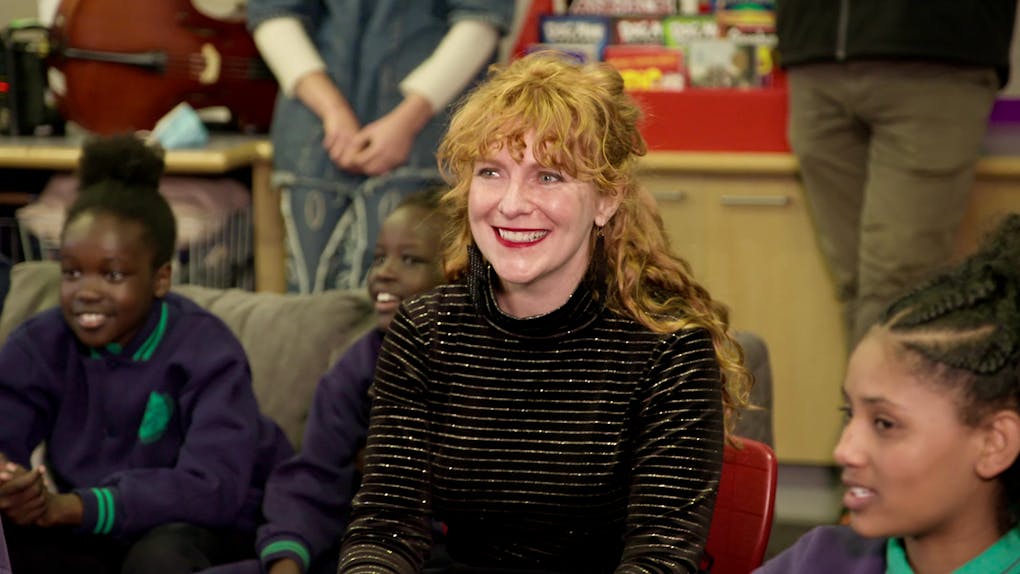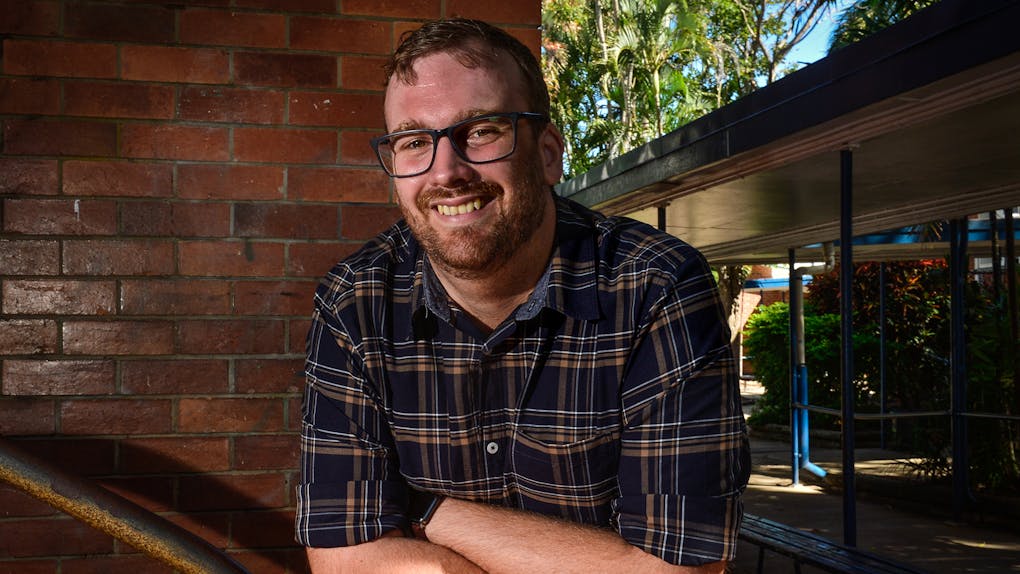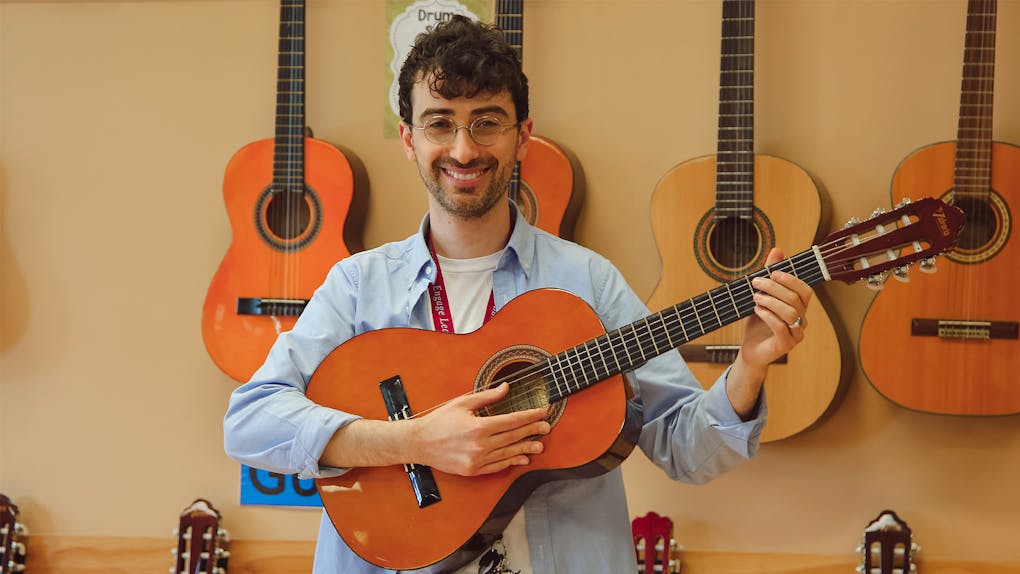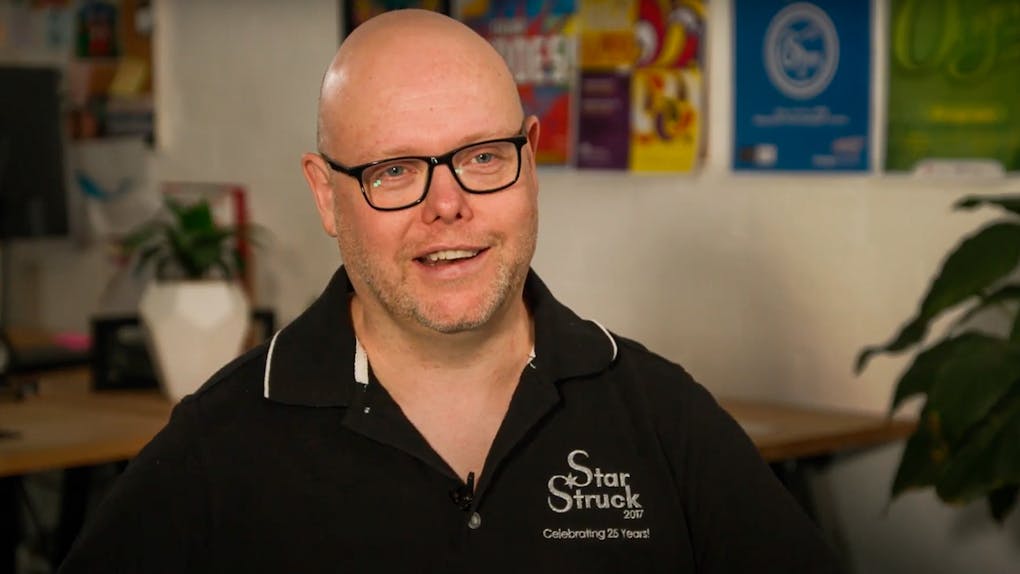
Zoë Barry has been teaching music at Fitzroy's Sacred Heart School for more than a decade. She runs Harmony In Strings, which is Sacred Heart School’s string instrumental program, now in its 11th year. Every student from Years 3 to 6 receives two half hour lessons per week in violin or cello, learning in small groups, as part of the school timetable. Barry – a cellist – teaches with Esther Henderson, who teaches violin. The students share instruments owned by the school, and the program is philanthropically funded by three members of the local community.
The school is situated opposite the Atherton Gardens housing estate, where the majority of students live. There are many nationalities represented in the school, with the largest populations being South Sudanese and Vietnamese. The students are dealing with extreme issues – poverty, high density living, racism, intergenerational trauma and resettlement. For 98% of the students English is their second language.
Harmony In Strings is focussed on the students developing a deep connection with their instrument, a love of music, and experiencing meaningful, joyous group music making. Through playing their instruments the students explore music, history and culture, connection and celebration. This exploration reveals new perceptions of themselves, their accomplishments, and their identities as they navigate their way in and between cultures.
The students learn by ear, with a strong emphasis on improvisation and composition. They learn a wide range of repertoire, from Renaissance dances to The Blues, Bach to movie themes, and collaboratively compose the core of their performance pieces. Their original compositions include “Sacred Heart Stomp”, “Eddie’s Lullaby”, and “Jiao, Yin Piol, Selamat.” They incorporate singing, games, rapping rhythmic work. The students have performed at local kindergartens and aged care homes, festivals and community events. Their most recent project, “Once I Caught A Fish Alive”, is published as a book and CD, performed in 11 languages.
Barry’s teaching approach is guided by kindness, unconditional positive regard and humour. Her goal is to inspire students to develop a strong relationship with their instrument that is curious and brave. She strives to nurture a deep love of music, to empower them to trust their musical instincts, and to encourage a connection to the poetic and abstract. Music is a means of wonder, connection and solace.
When the program began the students were not familiar with string instruments, and as there was no context, the instruments had little meaning for them. There is now such a rich musical culture within the school that the younger students can’t wait until Year 3 when they can begin. Music can be heard throughout the school and in the playground.

Ashley Baxter is the Director of Music at Pimlico State High School in Townsville.
Having been in the position for three years, he has guided his through a major monsoon event that hit Townsville had in early 2019 and then the COVID-19 pandemic in 2020/21. His approach to music teaching is that students need to be exposed to as many musical experiences as possible. For some students this might be taking the giant leap of singing for the first time outside of the shower and for others it could be performing a solo in front of the orchestra at a large concert. His thinks it’s important to differentiate these experiences and always make these experiences as safe and supportive as possible.
Baxter believes that music education is important no matter what students choose to do once they have completed their formal schooling.
Aside from leading a team of highly skilled and respected music teachers, Baxter teaches year 7, 8 and 12 Music and Year 12 Music Extension. He conducts the Junior Symphony Orchestra and directs the Pimlico State High School Drumline.
In order to stretch the reach of the community of the Pimlico State High School music program, students from local primary schools are invited to become members of our Junior Symphony Orchestra. This opportunity allows students who are excelling in their instrument at primary school a chance to extend and enrich their music experiences.
Some of Baxter’s initiatives included live streamed music concerts during COVID lockdowns; inviting students from local primary schools to become members of the Pimlico State High School Junior Symphony Orchestra; launching the Atrium Artist Series, which allows students the opportunity to perform in the school’s music block and creating a safe and supportive environment for students.

Aaron Silver is a music teacher at Wodonga Primary School (WPS) in North-East Victoria
Growing up attending small, community folk music festivals, Silver learned from a very early age that you don’t have to be a professional musician or be the person up on a stage to make incredible music. He also learnt that music can build community in the best, and most powerful way.
Silver has studied and performed music as a trumpet player, choir member and leader but the proudest moments in my musical life have all come from developing the music program at Wodonga Primary School.
Now in his fifth year of teaching music at WPS, he continues to be surprised and humbled by the positive effect that my music program has had on the lives of students and the culture of the school and school community.
Over the course of the last 5 years the music room at WPS has become a space where students feel safe and excited to learn.
In 2018 Silver became a Musical Futures Champion teacher, recognised for putting instruments in the hands of students and empowering students to play songs that they know on instruments they want to learn like ukuleles, guitars and keyboards.
Silver has built a brass and woodwind program in collaboration with the local high school designed to increase the number of students playing in the high school concert band.
During remote learning, the videos, songs and lessons Silver created made a big difference to many students and parents. He received feedback that his lessons were sometimes the only thing students engaged with on a given day.

Daniel Wilson is the Musical Director of Star Struck, Newcastle.
Featuring over 3500 of the most talented singers, dancers and musicians from Hunter and Central Coast regions, Star Struck is an annual arena extravaganza event that was established in 1993 and has run annually ever since.
Wilson joined the Star Struck music team in 2000, becoming Vocal Director for the show. In 2008 he stepped up to the role of Musical Director. In his time in the role, Wilson has seen the Star Struck music team grow from a 16-piece Stage Band to a 65-piece Rock Orchestra, plus a vocal team of over 80 students and 3 vocal directors, plus the 500-voice choir.
The growth of Star Struck has had a measurable impact on the local school community, it is becoming an integral part of the annual calendar. Auditions and applications to be part of this program are grow every year and teachers comment that they are seeing their students’ progress in leaps and bounds at school because of either being part of a Star Struck production.
